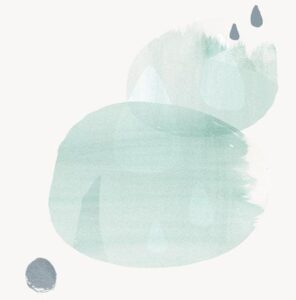TRANSLATED FROM THE ITALIAN BY MARIE ORTON
There are institutions that aim to promote the ideal of peace, engaging countries of the world to say no to wars, to suffering. In our day in age, characterized by progress evident to everyone, the universe is practically resting in the hollow of human hands, but humans struggle to overcome divisive identities, still fixed on their orbits defending their own customs and rejecting others. We put great thought into our identities, value our linguistic properties and struggle to recognize the other. To live is to recognize; to live is to recognize oneself. Our existence has true meaning when we try to derive our existence starting from the other; the other as a subject who has something to give, something to say, something to offer.
Together with the other, we will be able to build and plan moments of coexistence, sharing, overcoming any form of obstacles that may prevent truly living together.
Some notions and/or terms, such as métissage, do not offer a definition that, from a lexical point of view, is easy to absorb. And unfortunately, we recognize that the headword métissage leads to confusion, and yet, there is no more fitting term. Métissage is a word that blends smells and scents; it removes barriers, buries mistrusts, builds the pantheon of beliefs, invites religions to act as equals, administers cohesion as a compass in interpersonal relations; métissage, like the bees in a hive, brings together the rhythms and songs of all peoples for the benefit of humanity; métissage lives and survives in defense of human dignity. To praise our human mission is to praise métissage. Humanity is in the process of becoming, always under construction, and will never be able to make its identity immutable.
We must ask ourselves why remain singular, defending something that does not change? This is absurd. To fulfill our being is to involve ourselves in becoming. We are what we are only when we succeed in transforming, changing, mutually exchanging, but not becoming indistinguishable. Grafting logically foster a healthy contamination aimed at elevating man to the sublime plane of human reason. Reason has taught us how to transform our environment, how to make our language rich, how to always transform our mechanisms of mobility by making them higher performing; grafting leads us to embrace the multiple and the Beautiful, to move away from the superficial of the simple: we must live to know, dive into the memories of cultures and be wildly enriched. To be métis is to be wild, this means to be rooted in the most remote cultures and at the same time open to the so-called modern cultures.
To be métis is to belong to all languages, that is, to live all languages. To love a culture, one must know its language, and every language conveys a culture and a civilization. While this may sound like a redundant statement, it demonstrates the intertwining of the two terms. What if the values of Chinese culture were translated and incorporated into the Arabic language and the same thing done in all languages? Then Humanity would understand the usefulness of being open to métissage. To be different means to be métis; that is, to be oneself and to live in the other, while not giving up what one is in order to consecrate a place for the other by elevating métis to the firmament of love. To praise métissage means to assemble all forms of creation together and make them available to those who feel human and non-human. To be métis means to be human. A human being needs to enter into the depths of his neighbor, respect him, get to know him and eventually embrace him. To be human not by affiliations, but to cultivate the human being in wisdom, trying to cultivate in the garden of secular civilizations, but to be human by acquiring the phronesis to act with temperance and humility, welcoming the other as an equal and recognizing him.
To live in the other is to raise the existence of the other to a level of equality. To be métis is a dialectic that allows us to overcome the clash of civilizations, to defeat religious intolerance; to be métis is to know how to cultivate different plants in one’s own garden, without cutting down the previous, already-nourished growth that made it verdant. For some, “contamination,” “hybridization,” “mixing,” are all synonyms rained down by detractors in order to reduce the language of métissage to a base category, but we must remain committed in the third millennium, following the progress achieved, that it is now understood that we carry values and beliefs that belong to everyone in our way of life.
Ralph Linton said, “The American citizen wakes up in a bed built on a model that originated in the Near East….”
To be métis means to be free, free to choose and free to build. Here is the final point that merits further exploration.
Judgment goes hand-in-hand with freedom. Our ability to judge clearly is intrinsic to our freedom. The métis is the one who judges in order to take, to put together, evaluating equally the values he can bring together.
As the poet Senghor reminds us,
It is from the grafting of this one on that one that our freedom must be born. Flavor of the fruit of the graft, which is not the sum of the component elements. Superiority because freedom, of the métis who chooses, where he wants, what he wants to do, of the reconciled elements, an exquisite and strong work.
Today’s world is immersed in extremist views. Could I not escape extremism by valuing freedom and accepting the other. The binomial, duality, is basically otherness, the recognition of the other as a complement, a continuity to the attainment of self that we can consider as religio-onis, a rich gathering that sparks dialogue (dia-logos) as Plato and Socrates taught us, that is, to question our positions, to take a step forward to understand the other. We will say then, to be métis is to be honest.
Also, read Regarding Love And Other Poems By Cahit Zarifoğlu, translated from The Turkish by Neil P. Doherty and published in The Antonym:
Follow The Antonym’s Facebook page and Instagram account for more content and exciting updates.




























0 Comments